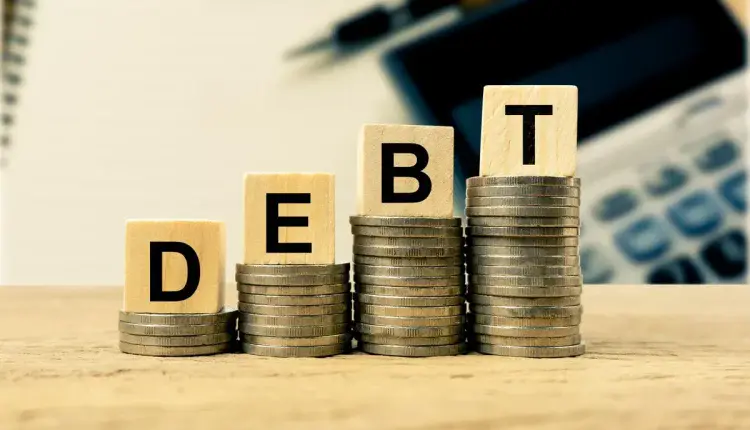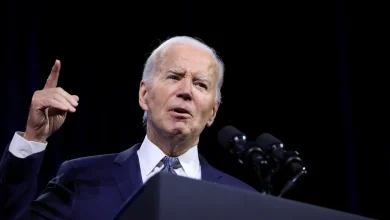
The Nigerian Presidency has dismissed growing concerns over the country’s rising debt profile, asserting that contrary to popular belief, the national debt burden has actually eased under the current administration.
Speaking during a televised interview on Tuesday, the Special Adviser to the President on Economic Affairs, Dr. Tope Fasua, said the administration of President Bola Tinubu has made significant strides in reducing the country’s debt-to-GDP ratio and improving debt sustainability since assuming office in 2023.
“At 39 per cent of GDP, Nigeria is actually under-borrowing,” Fasua stated, adding that debt servicing costs have also dropped sharply. “The last data I received showed that debt servicing is down by 64 per cent. In 2022, we were at a point where debt servicing consumed over 120 per cent of revenue we had to borrow just to pay existing debts.”
He explained that the government’s approach to borrowing is strategic, aimed at expanding infrastructure and spurring economic productivity. According to him, Nigerian states have collectively paid down 42 per cent of their debts between 2023 and 2024.
“Like any growing enterprise, a country has to balance paying off old debts while taking on new ones to support long-term growth,” he said. “It’s not reckless borrowing; it’s targeted investment in the future.”
External Debt Figures Tell a Different Story
Despite the Presidency’s assurances, data from the Debt Management Office (DMO) indicates that Nigeria’s external debt rose to $45.97 billion (N70.63 trillion) as of the first quarter of 2025 a 26.07% year-on-year increase from Q1 2024. The National Bureau of Statistics (NBS) attributes the surge to fresh borrowings and the continued depreciation of the naira.
Fasua acknowledged the increase but maintained that infrastructural needs estimated at over $3 trillion annually justify the government’s borrowing strategy.
“We have an infrastructure deficit that cannot be ignored from roads to bridges to power supply. This investment is also key to tackling multidimensional poverty, which goes beyond income and looks at quality-of-life indicators like access to infrastructure,” he said.
He also claimed that government efforts have led to significant improvements in social indicators, asserting that as many as 120 million Nigerians have been lifted out of multidimensional poverty, a figure that has yet to be verified by the NBS or other independent agencies.
Inflation Falling, Economy Stabilising — Fasua
In response to concerns about inflation and living costs, Fasua pointed to a positive trend in headline inflation, which dropped from 21.88 per cent in July 2025 to 20.12 per cent in August 2025, according to NBS data.
He argued that food prices are stabilizing, aided by an improving exchange rate and rising crude oil prices.
“This is the first year in over two decades where tomato prices have remained stable during peak season,” he said. “Farmers are even complaining that falling food prices are affecting their margins which is good news for consumers.”
Fasua expressed confidence that Nigeria is on the path toward single-digit inflation, drawing comparisons with countries like Ghana and Pakistan, which have recently seen their inflation rates drop from over 40 per cent to below 10 per cent.
“Inflation doesn’t rise forever not in any country,” he added. “Our figures are rebased and far more accurate now. What matters is that the trend is consistently downward.”
Fasua also highlighted improvements in the foreign exchange market, revealing that the naira traded at ₦1,497/$1 on Monday, the strongest it has been in about eight months.
“For the first time in months, we’re back in the ₦1,400 region. The exchange rate has stabilised due to market forces, and this is helping curb inflation,” he said.
He credited rising crude oil prices and stable agricultural output for the improved economic outlook, suggesting the country’s fundamentals are beginning to improve.
Responding to recent remarks by former Vice President Atiku Abubakar, who claimed that Nigerians are “dying of hunger,” Fasua dismissed the statement as politically motivated.
“That’s just political talk. Atiku is angling to return to power, and he won’t acknowledge the achievements of this government. But the data speaks for itself,” he said.
He encouraged Nigerians to focus on objective economic data rather than emotional or politically charged commentary.
“Let’s look at the facts, inflation is easing, the naira is recovering, debt servicing is down, and we’re investing heavily in infrastructure. That’s how you build a resilient economy.”





